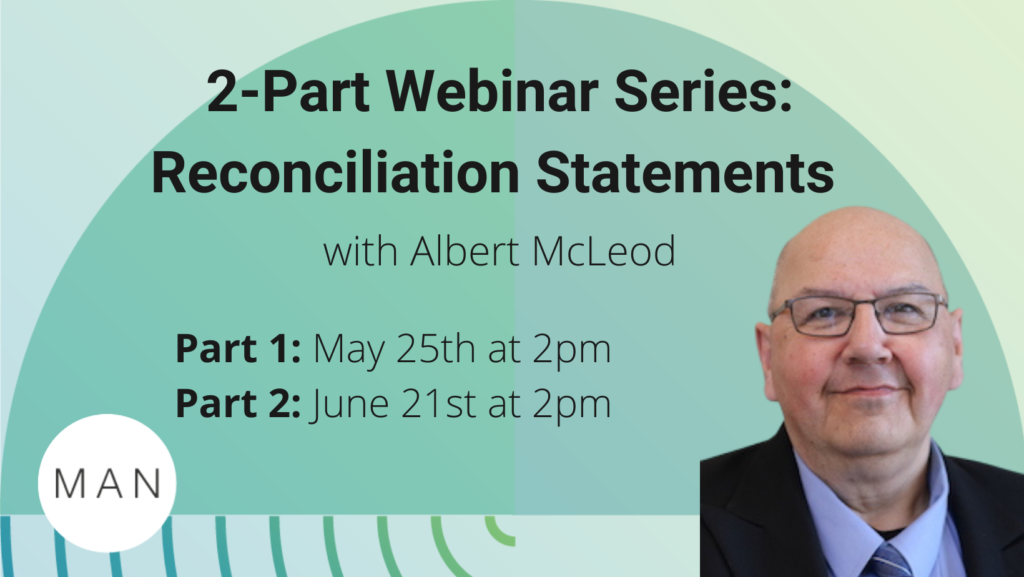
- This event has passed.
Part 2: Reconciliation Statements with Albert McLeod

June 21, 2022 @ 2:00 pm – 3:30 pm
Free for Members; $10 for Non-Members (registration link for non-members provided below)
Following Part 1 to the series, participants will be given the time to draft their Reconciliation Statements and email their drafts to Albert before the 2nd session, where a few examples will be chosen (based on consent) to review during the session.
—
Reconciliation Statements are an important addition for all arts & culture organizations. Reconciliation Statements allow for your organization to establish purposeful actions towards reconciliation and help to enhance the relationships being fostered within your community, while also addressing such Calls to Action as:
Missing Murdered Indigenous Women & Girls Calls to Justice: Ensure that all Indigenous women, girls and 2SLGBTQ+ people are provided with access to their cultures and languages in order to restore, reclaim and revitalize their cultures and identities.
TRC Calls to Action: Be properly reflective of the diverse cultures, languages, and perspectives of Indigenous peoples, including, but not limited to: Increasing Indigenous programming, including Indigenous-language speakers.
In this session Albert McLeod will discuss Reconciliation Statements, what they are, how to create one, and why they should be an important part of the forward facing identity of your presenting organization. At the end of the session participants will go away with the confidence to draft their own statements.
Albert has worked with many organizations including MAN. Albert coached us in the creation of our Decolonization and Reconciliation statement/commitment along with our Diversity, Equity and Inclusion Statement, in order to make them more meaningful and actionable. Check them out here
Participants will reconvene for a second session bringing back their written Reconciliation Statements.
—
Albert McLeod is a Status Indian with ancestry from Nisichawayasihk Cree Nation and the Metis community of Norway House in northern Manitoba. He has over thirty years of experience as a human rights activist and is one of the directors of the Two-Spirited People of Manitoba.
Albert began his Two-Spirit advocacy in Winnipeg in 1986 and became an HIV/AIDS activist in 1987. He was the director of the Manitoba Aboriginal AIDS Task Force from 1991 to 2001. In 2018, Albert received an Honorary Doctorate of Laws from the University of Winnipeg.
Albert lives in Winnipeg, where he works as a consultant specializing in Indigenous peoples, cultural reclamation, and cross-cultural training.
